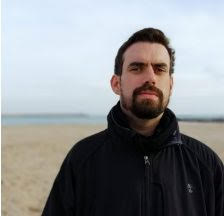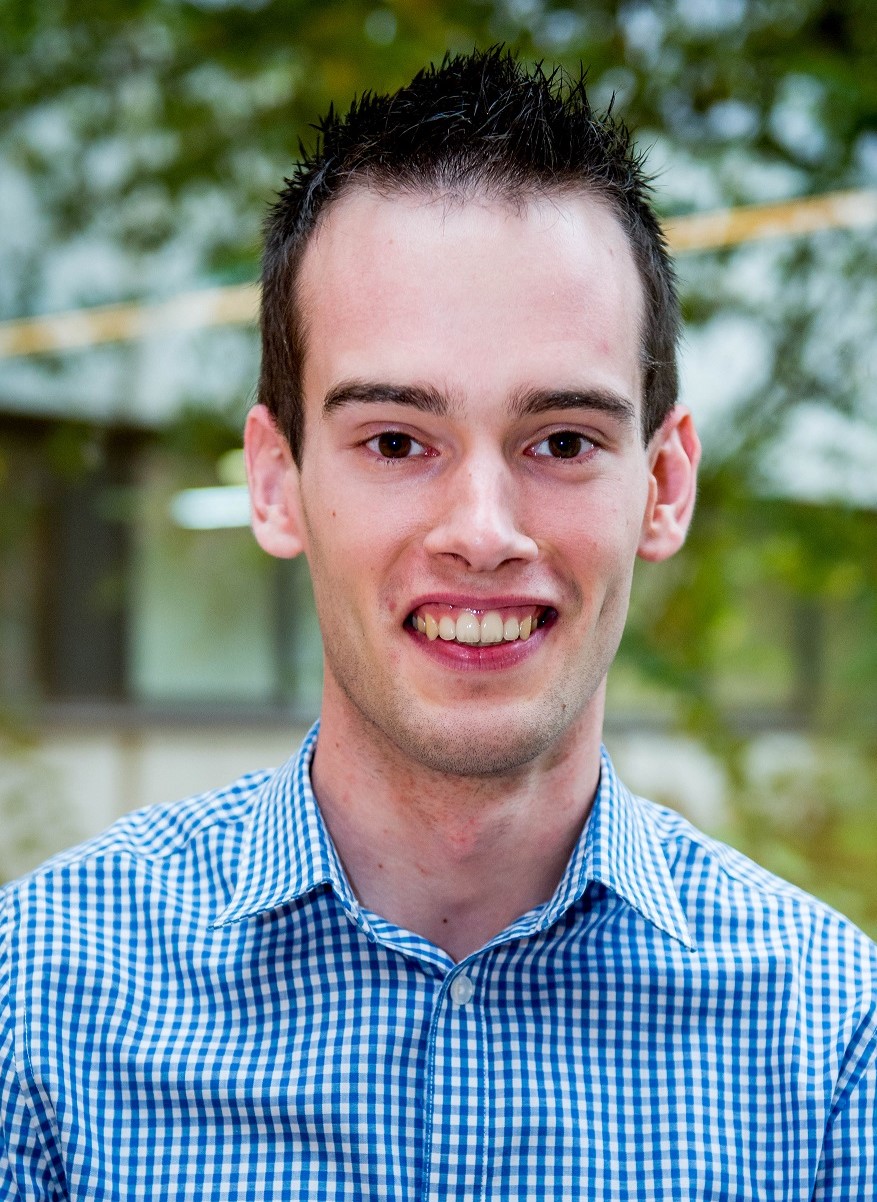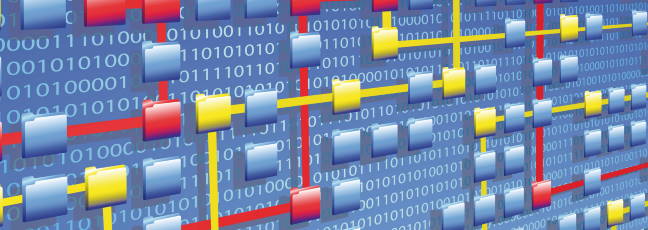Exploring newland: Process mining and healthcare
ICPM exploring newlandTalking with Jorge Munoz-Gama and Niels Martin
Process mining has gained considerable momentum in the course of the last years in the healthcare domain, as it proves a powerful means to gain evidence-based insights into its processes. We speak of the potentials, challenges and future of process mining in healthcare with two expert researchers in the field, organizers of the annual the Process-Oriented Data Science for Healthcare workshop (PODS4H, co-located with ICPM 2020): Jorge Munoz-Gama (JMG, in the picture below on the left) and Niels Martin (NM, in the picture below on the right).
Tell us a bit about yourselves and your research institutes.
 JMG: I did my PhD in Barcelona, my hometown, and later I moved to Chile. Here I co-direct the “Human & Process Research Lab (HAPLAB)” — haplab.org — where we close the research gap between Process Mining and other areas, such as healthcare, education, and more recently, medical education.
JMG: I did my PhD in Barcelona, my hometown, and later I moved to Chile. Here I co-direct the “Human & Process Research Lab (HAPLAB)” — haplab.org — where we close the research gap between Process Mining and other areas, such as healthcare, education, and more recently, medical education.
NM: After obtaining my master’s degree in 2013, I started my PhD on data-driven process simulation in the research group on Business Informatics at Hasselt University (Belgium). In 2017, I defended my dissertation and got the opportunity to stay within the group as a postdoc. Due to several side-projects I worked on during my time as a PhD-student, I already knew that I wanted to focus on healthcare-related research. Currently, I am still affiliated to Hasselt University and work on a project funded by Research Foundation Flanders (FWO). In autumn, I will take the next step in my academic career and join the Data Analytics Laboratory of Vrije Universiteit Brussel (Belgium) as an assistant professor. My research line will remain “Process Analytics in Healthcare”.
When and why did you first come up with the idea to do research in process mining?
JMG: In 2008 I decided I wanted to teach, so I approached the best professor I had: Josep Carmona. He explained that I needed a PhD and proposed 3 Process Mining topics. I started by reading Anne Rozinat’s paper on token-game, and before finishing it I knew I wanted to do my thesis on Conformance. I never asked what the other 2 topics were.
NM: In this respect, all credits go to my supervisor Benoît Depaire and co-supervisor An Caris. They had complementary expertise in process mining and simulation, respectively, and had the great idea to combine both fields. Besides some preliminary papers on this topic, there were still a lot of open challenges. As I had no background in process mining, I remember that Wil’s textbook on process mining was my holiday literature during the summer before starting my PhD. By the way, the most comprehensive work on the topic of data-driven process simulation in 2013 was also by Anne Rozinat. So basically, it was meant to be that Jorge and I would team up later ;)
Why does process mining offer a good toolkit to handle healthcare process data? And what are the typical 3-5 challenges that darken the nights of a process miner dealing with those data?
 NM: Process mining enables healthcare organizations to gain evidence-based insights into their end-to-end clinical and non-clinical processes. While healthcare organizations are familiar to the notion of a process within the context of clinical pathways, process mining makes it, for instance, possible to understand the adherence of this pathway and to instigate evidence-based process improvement. Besides this potential, there are definitely challenges ahead. For my perspective, the key challenge is data quality. In healthcare, almost all data is currently recorded following a manual action by a nurse or a physician. This gives rise to a multitude of issues, such as clinical activities being recorded in the system hours after they have been executed. Another challenge is that healthcare processes are typically complex and heavily rely on patient-specific decisions from medical staff, making it more difficult to obtain understandable outcomes from process execution data. This process execution data is also increasingly recorded by a variety of platforms as, for instance, healthcare apps are becoming more common to follow-up patients from home. The latter trend will make data integration efforts more important in the future. Besides these highly relevant challenges, I think we should also look beyond data. When working on process mining in healthcare, a specific research attitude is required. This involves, amongst others, starting from real-life problems experienced by clinicians and healthcare organizations, requiring by default a multidisciplinary approach.
NM: Process mining enables healthcare organizations to gain evidence-based insights into their end-to-end clinical and non-clinical processes. While healthcare organizations are familiar to the notion of a process within the context of clinical pathways, process mining makes it, for instance, possible to understand the adherence of this pathway and to instigate evidence-based process improvement. Besides this potential, there are definitely challenges ahead. For my perspective, the key challenge is data quality. In healthcare, almost all data is currently recorded following a manual action by a nurse or a physician. This gives rise to a multitude of issues, such as clinical activities being recorded in the system hours after they have been executed. Another challenge is that healthcare processes are typically complex and heavily rely on patient-specific decisions from medical staff, making it more difficult to obtain understandable outcomes from process execution data. This process execution data is also increasingly recorded by a variety of platforms as, for instance, healthcare apps are becoming more common to follow-up patients from home. The latter trend will make data integration efforts more important in the future. Besides these highly relevant challenges, I think we should also look beyond data. When working on process mining in healthcare, a specific research attitude is required. This involves, amongst others, starting from real-life problems experienced by clinicians and healthcare organizations, requiring by default a multidisciplinary approach.
JMG: As Niels mentioned, quality, understandability, and a new multidisciplinary culture, are important challenges for applying Process Mining with healthcare data. And these challenges come hand by hand with important computing challenges. For example, healthcare data is known for being sensitive data and under strong regulations. There is a need for new algorithms that guarantee the anonymization, privacy, and security of the data, while preserving its usefulness for the analysis. Another challenge is to go beyond discovery, proposing new conformance and enhancement techniques for this kind of data. These new techniques must be developed under the scope of novel methodologies and frameworks specifically designed for the healthcare domain.
Tell us a bit about the Process-Oriented Data Science for Healthcare workshop. How can process mining researchers contribute to PODS4H, and how can process mining enthusiasts benefit from attending the event?
NM: I remember approaching Jorge at BPM 2017 with the idea to organize a healthcare workshop. As we shared the same views, we discussed this later that evening with some colleagues and PODS4H was born. We would like to welcome everybody to join PODS4H 2020. Researchers can, of course, contribute by submitting their promising research to the workshop. But everybody is more than welcome to attend. For me, PODS4H is unique because of its very friendly and constructive atmosphere. Many research collaborations have been established during the workshop. We will do our utmost best to maintain this vibe in the online edition of the workshop in October 2020.
JMG: A strong point of PODS4H (pods4h.com) is its brainstorming session, where the entire community gathers to propose projects and look for collaborations. Since ICPM is online and free, we expect this year's session to be massive! The other key point is our journal's special issue that always accompanies the workshop. This year we plan to go even a step further…… and that’s all I can tell :)
How do you see the interplay of data science & process mining for healthcare in the future?
JMG: Growing exponentially! In mid 2016 we published the “Process mining in healthcare: A literature review” that includes only 74 articles. As of mid-2020, it has been cited more than 285 times. 285 new research works on how to apply PM to healthcare in just 4 years. Plus all the books, MOOCs, special issues, tutorials, datasets, etc, that have been recently created. So imagine all that still has to come in the future.
NM: I fully agree with Jorge: there is increasing research interest in healthcare-related topics. As the specificity of healthcare is becoming increasingly recognized within the research community, even more dedicated research will be performed in the future. Besides the increasing research interest, I also feel that a very strong international community is currently being formed. The PODS4H alliance, which is closely affiliated with the IEEE Task Force on Process Mining, will continue to promote coordinated community efforts in the field of process mining in healthcare. Together, we will make it possible for healthcare organizations to benefit from the full potential of process mining.
- This article has been updated on September 11 2020, 13:37.
- Talking with Jorge Munoz-Gama and Niels Martin

